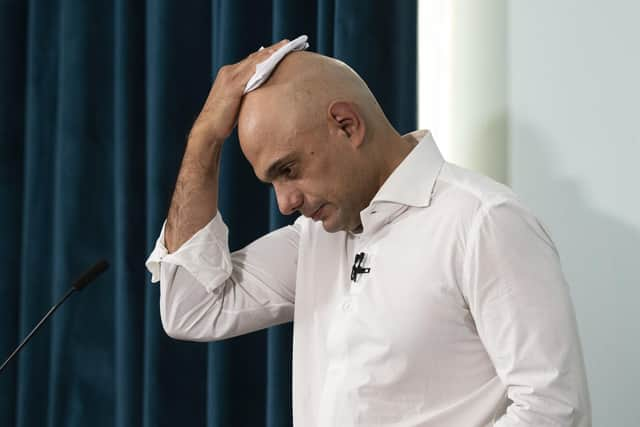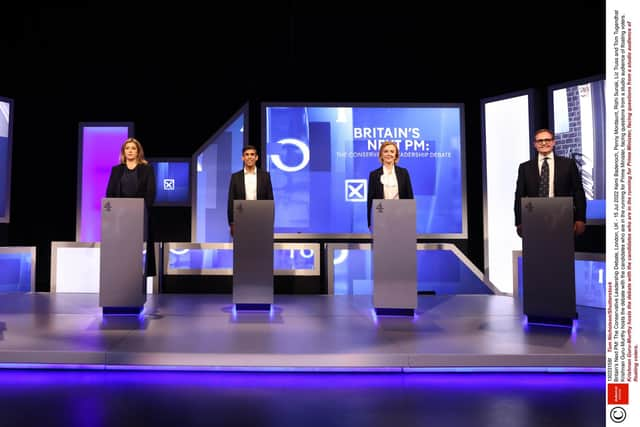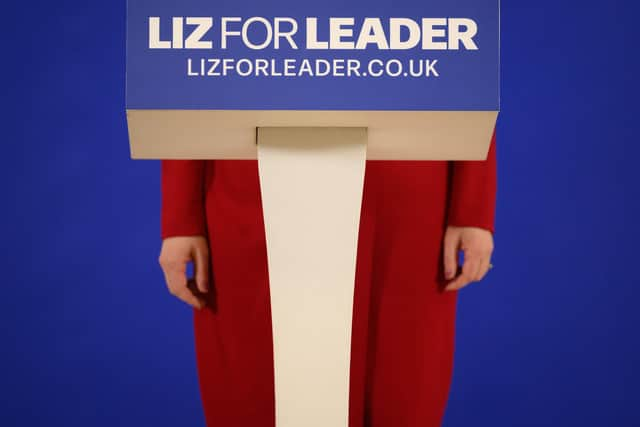Blue-on-blue attacks as Tory fratricide dominates race for Downing Street
Having destroyed Boris Johnson’s political future, the Tory party has turned on itself over the past seven days, with accusations of “black ops” tactics, shifting loyalties, and a slew of briefings and counter-briefings dominating proceedings.
A battle waged with low blows has already whittled the field down from eight to five, with Jeremy Hunt, Nadhim Zahawi, and Suella Braverman eliminated after the first two ballots of Tory MPs. Their egos may well be bruised, but they can at least rest easy in the knowledge their reputations will not be under attack. For the time being, anyway.
Advertisement
Hide AdAdvertisement
Hide AdThe first full week of a leadership race that will drag out over a long, hot summer until the foothills of September has been so vitriolic that it is hard to know quite how it can stoop any lower.
Even before the first vote was cast, there were warnings from some of the candidates about the dirty nature of the nascent contest to succeed Johnson and win the keys to Downing Street.
Former health secretary Sajid Javid, who pulled out of the race just before the closing of nominations, warned of “poisonous gossip” emanating from other leadership campaigns.
“This isn’t House of Cards or Game of Thrones,” he insisted. And he was right. Both those shows had the restraint to space out the deaths of its leading characters. The Tories, by contrast, seem content to engage in ritualistic slaughter from the get-go.
By the time the first round of voting had concluded on Wednesday, two other failed candidates had echoed Javid’s remonstrations.


Zahawi said he was “clearly being smeared”, while Hunt cautioned that the short-term tactical gain of “smears and attacks” would always backfire in the long-term.
In truth, there was an element of sour grapes to some of these complaints. The scrutiny of Zahawi’s financial affairs and those of his family were clearly relevant to the debate, and remain very much in the public interest for as long as he holds elected office.
Hunt, meanwhile, demonstrated how his own loyalties can be fluid, having thrown in his lot with Rishi Sunak instead of Penny Mordaunt, who backed him in the 2019 leadership race, only to be passed over for post in Johnson’s cabinet.


Advertisement
Hide AdAdvertisement
Hide AdSuch is politics, some might say. But there is no doubt that the acrimonious nature of the Tory battle royale has surprised even veteran Westminster observers.
Mordaunt in particular has been the focus of several unrelenting attacks, especially after the second ballot of MPs on Thursday, which saw her take 83 votes to the 64 won by foreign secretary, Liz Truss.
In a sign of Brexit’s success at nullifying the role of unelected bureaucrats in British public life, an unelected bureaucrat - Lord Frost - was among the most vocal voices from the ranks on the Tory right, decrying Mordaunt’s abilities and accusing her of being “absent on parade” when he worked with her on post-Brexit negotiations last year.
In an interview with Sky News, Mordaunt later accused other leadership campaigns of running “black ops” briefings in an attempt to damage her prospects.


Expect those tensions to ramp up a notch after Suella Braverman, who saw her prime ministerial ambitions dashed in the second ballot, threw her weight behind Truss.
Predictably, similar allegations were levelled from other camps. Nadine Dorries, another Truss supporter, accused Sunak’s campaign of “dark arts” and “dirty tricks”, insisting that it had lent votes to Hunt in an effort to prop up a candidate the former chancellor viewed as eminently beatable.
Sunak’s camp, by contrast, has been relatively quiet, which should not come as a surprise given he remains the front-runner, having secured 101 votes in the second ballot. Do not expect his position to hold for much longer, especially if Mordaunt’s momentum continues to build.
There was a hint of the former chancellor’s aggression during Friday’s televised debate on Channel 4 between the leadership hopefuls, when he accused Truss and Mordaunt of dishonesty about their stances on tax.
Advertisement
Hide AdAdvertisement
Hide AdWith two more television debates to come between now and Tuesday, and further rounds of voting to come this week, only two finalists will remain by the end of the week, according to the rules laid down by the 1922 Committee.
That may calm the waters and provide some space for ideological debates and policy scrutiny - especially around taxation - which have been relegated to the status of a sideshow so far.
But for now, the focus is on who will secure the votes of the outliers, Tom Tugendhat, and Kemi Badenoch if, as many expect, they are ultimately eliminated in the next rounds of voting.
Whatever hopes Truss has of overtaking Mordaunt for second place depends largely on this dynamic, and even more so on a quality that has been conspicuous by its absence to date - charm.
Time will tell who emerges from the fray to put their case to the Tory grassroots during several weeks of hustings, and it would be foolish to offer much in the way of predictions.
As Iain Duncan-Smith, the former Tory leader, caustically observed during the week, this is a psychodrama like no other.
“This is the most duplicitous, lying electorate that you’ve ever come across - it’s called MPs,” he said. “Some of them tell everybody they’re voting for them.”
Comments
Want to join the conversation? Please or to comment on this article.
